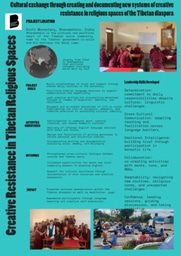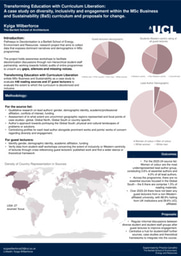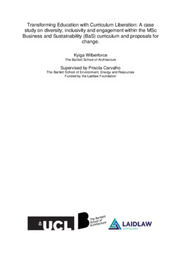When I first arrived in Dharamshala, the Indian hill town that houses the Tibetan government-in-exile, I was struck by how instantly I felt at home amongst the quiet layering of the sacred and the everyday. Monks in deep red robes queued at roadside shops, children in blue school uniforms raced up steep rock paths, and elders rested in the sun with prayer beads swimming through their fingers. It was within this backdrop that I began my project at Kirti Monastery, seeking to learn from – and contribute to – a community shaped by exile.
My days started early, following the rhythms of monastic life. At dawn, chants rolled across the courtyards; by mid-morning, I was chopping vegetables or brewing tea alongside the monks. These ordinary tasks became the foundation of trust, catching up on what we had all been up to and what the plan of the day was. Sharing labour reminded me that leadership is not always about directing; sometimes it is about turning up, committing to small acts, and recognising the dignity of collective routines.
Alongside this work, I organised informal English classes. The monks were curious students, eager to practice greetings, describe their daily lives, or understand texts beyond Tibetan and Hindi. In our creative writing sessions, we turned to broader themes: family, exile, identity. Whilst they were not all immediately confident with writing their personal histories, they were fantastic oral narrators, recounting memories of families left behind, mountain crossings, or the vivid recollection of home despite decades of separation. Through English, halting and resuming at times, they translated memory into testimony.
Another unexpected strand of my project was running yoga and meditation sessions. Although the older monks were master meditators, the younger kids were wildly enthusiastic about physical yoga postures and breathwork. These sessions became moments of genuine exchange: I introduced practices I knew, and in return they shared subtler techniques of concentration drawn from their own traditions. This reciprocity – teaching and learning at once – became a defining feature of my time there.
The challenges were real. Language difficulties demanded patience and creativity; I often resorted to drawings, gestures, or humour to make myself understood. There were also moments of self-doubt, when I questioned what I could meaningfully offer to a community whose resilience and spiritual depth far exceeded my own. Yet it was in navigating these challenges that I learned the most. Cross-cultural communication, I discovered, is less about fluency than about attentiveness, humility, and sincerely contributing something towards individuals’ learning and development.
What I witnessed in Dharamshala was a form of leadership different from what I had previously known. The monks embodied leadership as care: maintaining rituals, sustaining each other in exile, and transmitting memory to younger generations. My role was not to impose but to facilitate – to create spaces for dialogue, encourage expression, and affirm the value of their stories.
The international dimension of this experience was transformative. Living within an exile community reshaped my understanding of myself and not as a detached visitor, but as a participant in a shared project of care and exchange.
Now, looking back, the lessons of Dharamshala extend far beyond my project. They inform how I think about leadership in unfamiliar contexts, how I value narrative as a tool for empowerment, and how I approach questions of belonging in my own life. Most of all, the experience taught me that true exchange begins with listening – whether through stories, shared labour, or even yoga postures – and that listening can be the bedrock of resilience.



Please sign in
If you are a registered user on Laidlaw Scholars Network, please sign in